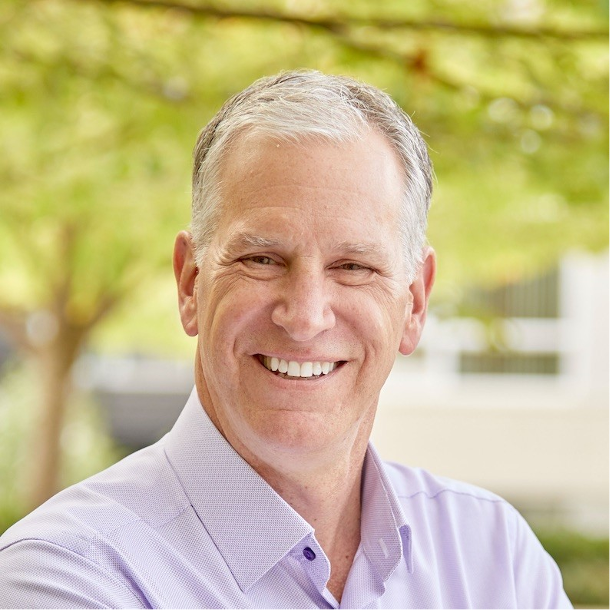Written by Stephen Boehler with special guest Kass Sells
Kass Sells is Global Chief Operating Officer and President of International at WE, one of the largest integrated communications agencies in the world. WE is independent, all about people — both their clients and their employees — and they believe in the power of communications to move people to positive action. WE works with global leaders like Microsoft, Lenovo, Cisco, Intel, Volvo, GSK, AbbVie, and Adobe. At Mercer Island Group we’ve had a 28-year relationship with the folks at WE, and we were delighted to have cornered Kass for a few minutes to capture his views on some of today’s major communications challenges.

How do you ensure that classic PR strategies are integrated with digital, social, and influencer strategies?
Kass: A brand’s audience is more mobile and more online than ever before. Reaching and connecting with your audience where they are is fundamental, so an integrated communications strategy, balancing traditional PR approaches with digital strategies is vital.
At WE we’ve been doing this for a while, building our digital capabilities, and integrating our newer strategies with some of our more traditional offerings. The foundation of this integration has to come from breaking down siloes within the business and having open communication across disciplines. Our research shows us that effective marketing strategies are increasingly not led only by paid activity, but run across paid, owned, and earned, with relevant content, social, digital, and experiential technology built-in from the start.
A great example of this is Adobe. We worked with the brand in Australia, where they’re known for their industry-leading design software, but where young millennials thought the software didn’t fit their “whenever inspiration strikes” attitude.

The “Made Here” campaign brought together a group of young creatives to collaborate on projects embracing the ethos of “creating anywhere, at any time”. Using social media to share their work and give viewers a look behind the scenes, they drove traffic to Adobe’s site and later turned the work into an interactive exhibition in Sydney. Using an integrated approach they secured more than $500,000 in new subscriptions revenue and moved adobe’s reputation to reflect its modern, on-the-go users expectations

How do you think about the balance between reputation-building and performance marketing strategies?
Kass: Reputation building and performance marketing go hand in hand when it comes to developing brand salience. You have to do both – full stop. And they have to be aligned, integrated, and executed effectively to both position a brand in the right space and drive business outcomes.
Ultimately, this integration is best when it starts and comes from a higher purpose. This will ensure that all activity supports the brand in the right way, and meets the goals of the campaign, while also solving real business challenges. An example of this I really like is from our telco client in South Africa, Vodacom. When South Africa went into lockdown last year, we partnered with them to raise their profile and the profile of their virtual learning platform, e-School. Working with the community and influencer parents on social media, we showed how Vodacom was living up to its purpose of keeping people connected, while the performance marketing tactics used meant that registrations went up by more than 1,000% compared to pre-lockdown, with more than a million registrations by March 2020.
Beyond that, campaign strategies need to recognize the expectations of the consumer also. Consumers have awoken to the impact of brands, and the positive potential they hold for the world, and recognition of that has to be built into the campaign activation, start to finish.

Every year there is some discussion regarding “the agency of the future”. Following this past very odd year, what near-term evolutions, if any, do you envision to the agency space?
Kass: 2020 was a disruptive year for business, including agencies, but it was even more hugely disruptive for the people who make up those agencies. In our role as agency leaders, we’re responsible for engaging with our employees, keeping them informed, and listening to the challenges they face to make sure we’re moving the business in the right direction. I’m a big believer in the power of agencies and their people to bring fresh insights, strategies, and ideas to clients. So in the near-term, I think this means we can expect to see agencies putting a bigger focus on their people and their own employee engagement programs.
Our latest research, Rethinking the Purpose and Meaning of Leadership, shows us that corporate leaders now need to listen to multiple stakeholders and voices and do so more often both before they make important decisions and after. Agencies should strive to be one of those trusted advisors and push for the opportunity to bring more diverse voices, perspectives, strategies, and creative ideas to their own table and then to their clients’. It’s our opportunity and our responsibility as leaders and as an industry to improve the diversity of our teams and the inclusivity of ideas we bring to our clients.
What are CMOs and senior marketers looking for in an agency these days?
Kass: The same as it ever was – results. Marketers increasingly want agile agencies who get work into the market and in front of consumers fast and efficiently. Agility is key to getting the job done. Increasingly that means the ability to offer integrated services on a regional, national, and global scale, that can move fast, is flexible, and can change as needed, but also builds towards long-term, sustainable growth.
The need for agencies that understand the importance of brand purpose is increasingly important as well. Agencies who partner with marketers to deliver purpose authentically have become vital. If you’re not taking time to get to know clients deeply, understand their purpose, and then bring that purpose to life with powerful storytelling and innovative ideas, you’re failing them.
What can agencies do to work more effectively with their clients?
Kass: Agencies really need to understand the fundamentals of a client’s business – their purpose, how they make money, the channels they use to connect with their consumers, and their business priorities. Any agency that just ticks-the-box through the client brief, not bringing new ideas to the table, is low-value and risks irrelevance among their competition.
Does that differ for PR and comms agencies vs advertising or digital agencies?
Kass: As a PR and Communications agency, we view the world through the lens of earned, owned, and corporate communications first. Our ability to reach key external stakeholders through the power of storytelling is where WE starts, and that means we’ve strategically developed a set of services and capabilities to deliver this for clients.
But we’re smart enough to raise our hands and say when we might not be best placed to deliver on other parts of the strategy – we don’t build eCommerce platforms, we don’t design billboards, or buy TV spots, but we collaborate with a network of agencies who do. So when we need to we can bring other agencies to the table, by way of our PLUS partner and affiliate networks, whom we trust, have relationships with, and know can complement our offering. We partner with great agencies like YouGov (research), GLG (digital), Empire (experiential), Transmission (performance marketing), and many others. We bring these fully-baked solutions to the table for many of the largest technology, health, and consumer brands in the world today, and are doing it seamlessly and in real-time.
What are your thoughts on leadership?
Kass: Our biggest responsibility as leaders, especially during COVID-19, is to keep our people safe, healthy, and inspired to do their best work – and we want them to know that. Right now, that means using health and safety as the lens to guide our decisions and our internal communications. Our Doing of Leadership research shows us that 71% of leaders know that articulating their core values and elevating their voice is more important than last year – we need to act like it’s impossible to overcommunicate with our people. That also means as leaders we need to be human – more authentic, a bit more vulnerable, and connect with more people more often and on a human level.
There’s now an expectation for leaders to engage their teams and inspire hope, not just increase productivity, and no longer lead from the top down. If we want to be successful, effective leaders we need to listen to the people across our businesses, at all levels, and engage with them. Yes, this takes time and effort, and intent, but we’re seeing that the leaders who invest in developing that purposeful connection with their employees are winning – keeping their great people and doing terrific work for their clients.

Knowing what you know now, what advice would you give to 30-year-old Kass?
Kass: Do your research. Get comfortable with data and distilling insights from it. Know when to ask for someone else’s perspective. And then use all of this to give you the confidence to take bigger risks. Build these insights into your leadership, your client counsel, and your work. And be bold.
And as you progress, grow your network too. Build networks of people who don’t think like you, don’t look like you, people who come from different backgrounds, and have different experiences than your own. Being able to work with a diverse set of people creates the biggest and best ideas and the most powerful work. And being able to bring people together, to build bigger tables where everyone has a voice and an opportunity to contribute, is what should define your leadership.
If you had one piece of advice for a leader, what would it be?
Kass: Leaders used to be expected to come across as polished rocks. Today they need to come across as more human, more open, and relatable. Part of that comes in making sure your leadership style is human to the core.
Our research has shown us that the number one priority for many leaders at the moment is to lead with empathy, purpose, and collaboration. I really agree with that thought and as leaders, I think we need to be clear that open, on-going, two-way engagement with our stakeholders – both internal and external – is essential. This means listening more and speaking less – unfamiliar ground for some leaders – but doing so pays off in multiple ways.
Steve Boehler, founder and partner at Mercer Island Group, has led consulting teams on behalf of clients as diverse as Zillow Group, Microsoft, UScellular, Nintendo, Ulta Beauty, Stop & Shop, Qualcomm, Brooks Running and numerous others. He founded MIG after serving as a division president in a Fortune 100 when he was only 32. Earlier in his career, Steve Boehler cut his teeth with a decade in Brand Management at Procter & Gamble, leading brands like Tide, Pringles and Jif.
Kass Sells serves as WE Communications’ global chief operating officer and president of international. In this role he brings together the teams and the resources necessary to deliver great campaigns across the entire media ecosystem, building enduring brand equity and business impact. A member of WE’s Global Leadership Team, Sells is an agency operator who drives impressive growth across the agency and increases collaboration across international markets. Throughout his 25+ year agency career, Sells has held leadership roles at TBWA Chiat/Day, DDB, FCB, and Wunderman – which have prepared him well for the challenges of steering a modern marketing agency. He’s led key engagements supporting Microsoft, McDonald’s, Xbox One, T-Mobile, Volvo, Ste. Michelle Wine Estates, McDonald’s, iRobot, and Honeywell; his teams have won Cannes Lions, Effies, ADDYs, Webby, DMA, and PR Awards. Sells serves on the board of The LAGRANT Foundation, helping to bring greater diversity to the PR, advertising, and marketing industry.